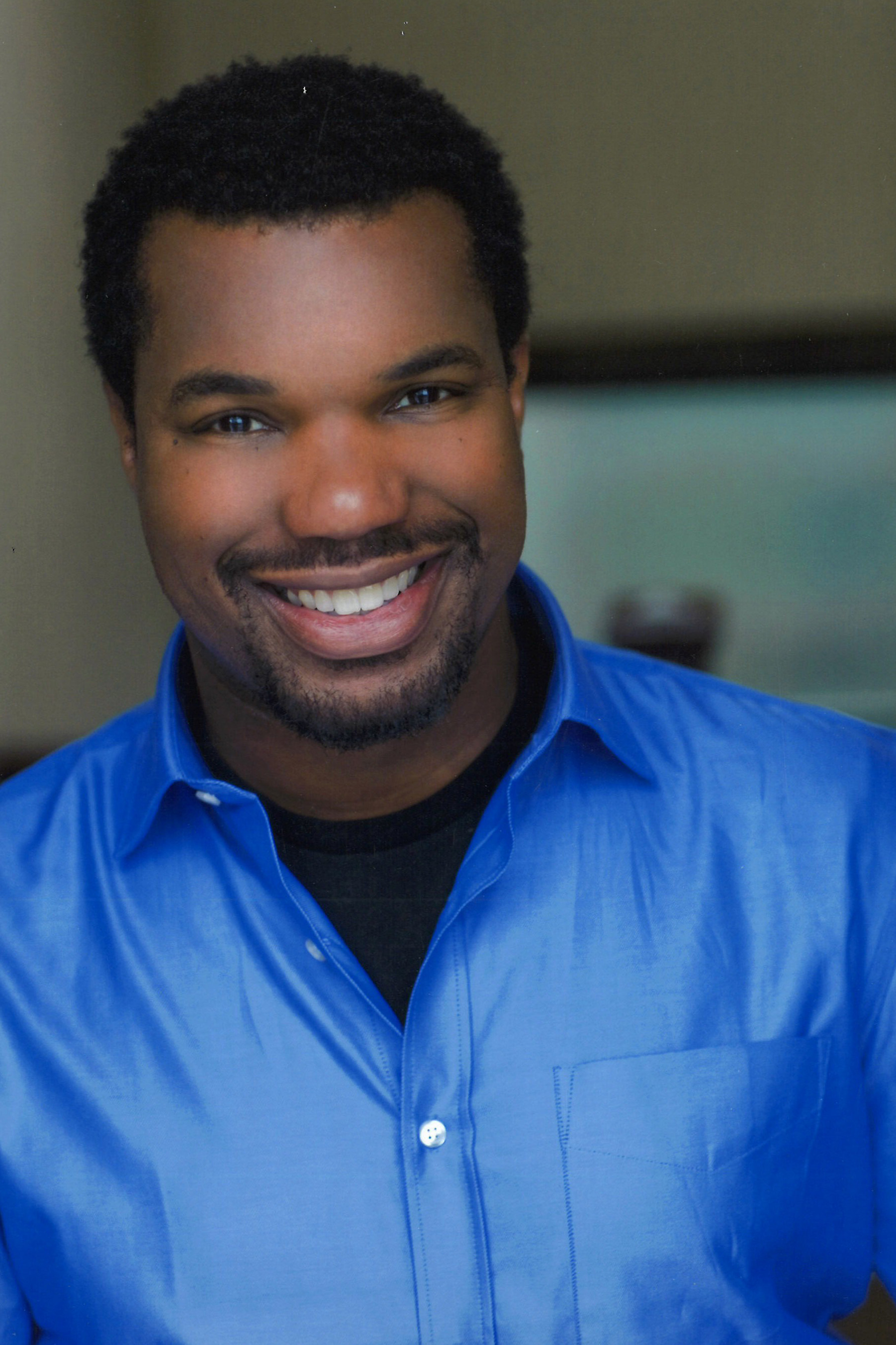
Troy Scarborough, a second year PHD student at Texas Tech, relies on his theatre background, what he believes to be required training for the next generation of theater makers, in his role as a graduate student representative on the season selection committee.
Before attending Texas Tech, Troy earned a BFA from North Carolina A&T, an HBCU, where he trained in black theatre. He has an MA from Wayne State where he studied period dramas, and an MFA from the University of Delaware, where he studied Shakespeare and heightened texts. Troy is versatile—he can act, sing, and move—and has experience with improv at Chicago's Second City Comedy Club. He believes that versatility, a quality he'd like to see further developed in our students, ties into his work on the season selection committee.
“Through trial and error, each member came up with our wish lists,” said Troy, “what shows we'd like to see done at Texas Tech. But the season selection is also how we train our actors; we decide what shows will be best for them, not only as performative opportunities, but also as vehicles for learning and education. Choosing the right shows is a weighty task. I believe it's an opportunity to vary their skillset as much as possible.”
There are fifteen people on the season selection committee, including multiple student representatives. Troy Scarborough is the PHD student representative and Carlos Medina-Maldonado (3rd year MFA Performance & Pedagogy) represents the MFA students. There are also representatives from undergraduate theatre students, dance students, as well several faculty and staff members, including Dr. Mark Charney (Director of School of Theatre and Dance).
Assistant Professor Jesse Jou, an associate director for the School of Theatre & Dance, heads the season selection committee which begins meeting each August.
“We meet three or four times a semester,” explains Troy. “The meetings are largely about how we privilege diversity and inclusion in the season, and how to provide students with the maximum number of opportunities to perform, write, and direct. Everyone has an equal voice.”
There are faculty and staff representatives from many areas on the committee: acting/directing, dance, design, playwriting, production, and marketing. As Troy explains,
To the best of our ability, we want to make sure everyone has a hand and voice in the decision of the process. It is challenging. We attempt to accommodate dance students, musical theater students, graduate students and so on. On top of that, we ensure that the shows are not demeaning to women, that they also represent the BIPOC community, LGBTQ individuals, and other groups of underrepresented voices. To ensure this, we must have these voices in these meetings. And we do! I can offer my perspective to the group as an LGBTQ person of color, and of a certain age, all of us, working together. For lack of better phrasing, we try to avoid only doing plays written by dead white men.
Troy, however, staunchly believes in the potential ability to balance progressive modern works and classics. He describes how he plans to round out Tech students' educations through making his voice heard in the season selection process:
On the committee, I suggest what I think. You can be sure of that! I worry for the students who graduate and haven't had any experience in Shakespeare or period pieces. Each semester, we put on two plays, one musical, and one dance festival. In the Spring, one of those play slots is taken up by Frontier Festival, which champions new, student-written works. Outside of that, we have plenty of room for plays by minority playwrights and, at the very least, the occasional classical work.
Troy is not the only one on the committee who feels strongly about classical representation in the theatrical season. And he reassures me that there is a method to the madness: “Not everyone can go to Broadway or star in a tv show; there are thousands of students graduating every year with a BFA! But how many Shakespeare Companies and regional theaters are there? I want to help students make a living in theatre.”
But is there a part of the selection process that discusses what plays cannot be done? Troy responds affirmatively:
That's a major focus, realizing what we can't do. Things like, oh, “This play doesn't have enough roles for women,” or “there's this problem thing said here in Act II.” But there is also the limitation of our student body to consider. For example, I cannot suggest African American plays in our meetings because there are not enough African American students to populate them.
He continues, reflecting on shows from our current season:
Guapa was a big deal, to have a Latine show that represented a minoritized group. To think that we could explore that community with a full cast, actors. and director: that is a huge deal. It was refreshing to watch. Producing Guapa was of the utmost importance for a university that is designated a Hispanic Serving Institution.
As a committee, we are successful when we, to the best of our ability, meet the needs of the program and provide maximum training opportunities for students. Our process is very challenging, but also extremely rewarding. There is great care that goes into the choosing of the season. There is nothing haphazard about it.
We are proud to have voices such as Troy's helping to guide the season, and we very much appreciate his active participation on the season selection committee.
